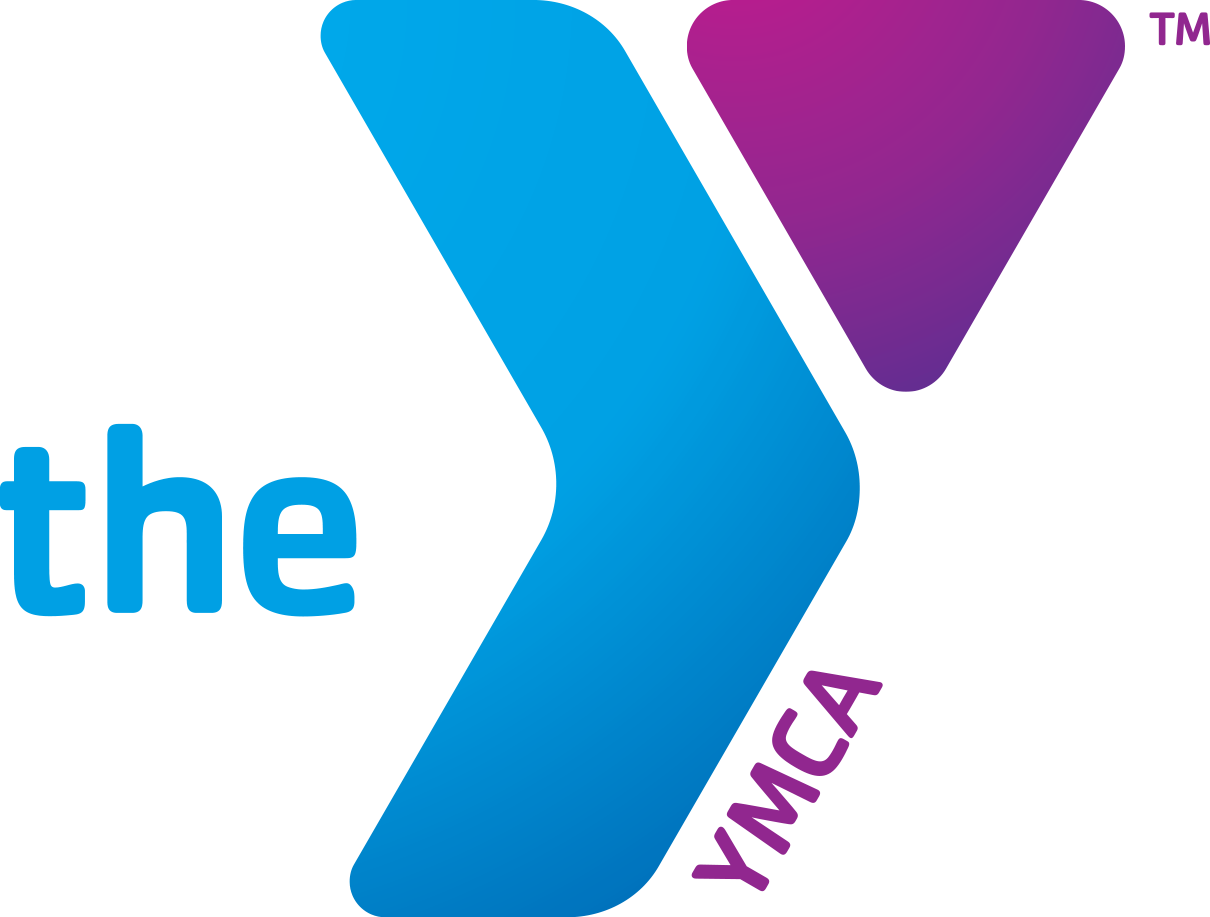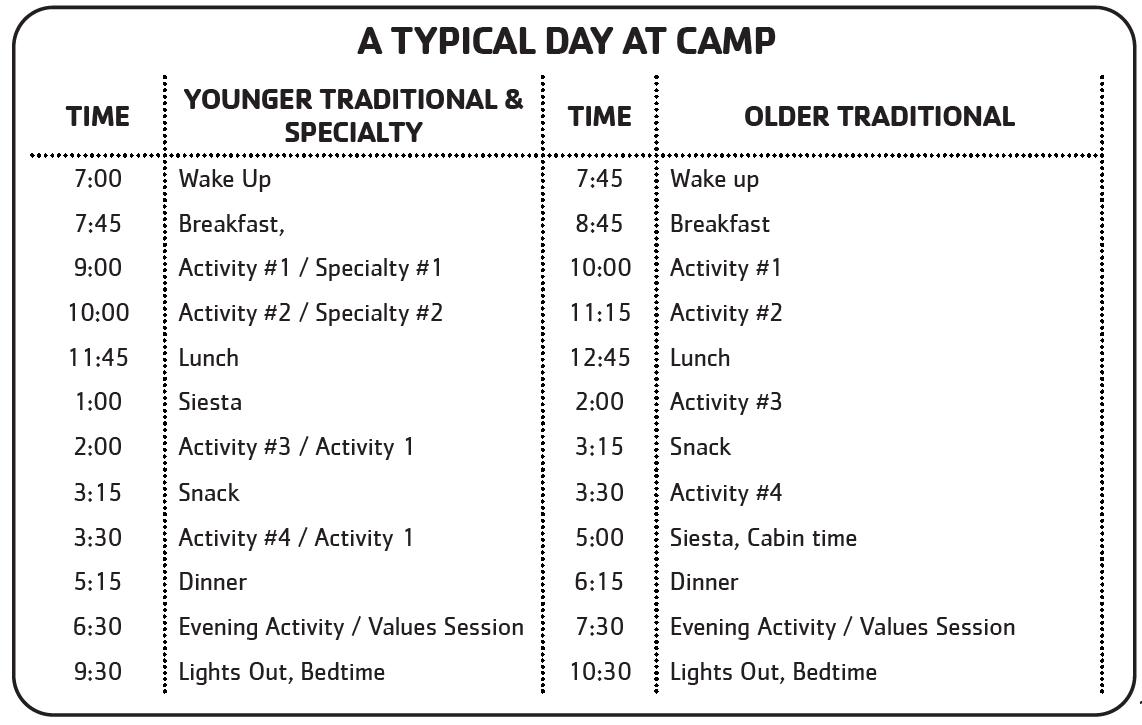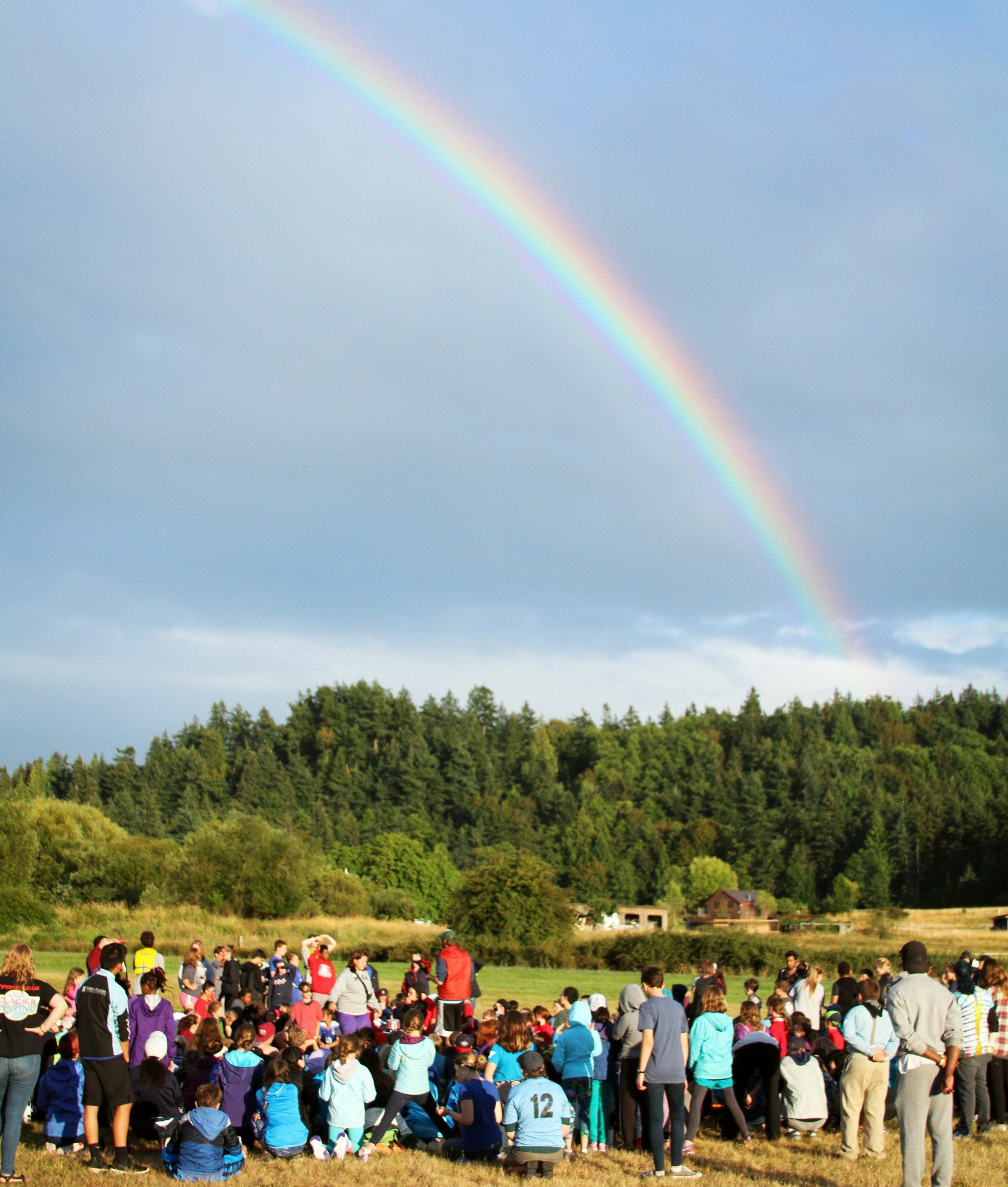Orkila Summer Staff Info!
This page is meant for staff who are working at Camp Orkila for the 2025 Summer Season.
If you are interested in learning more about our Fall & Spring Programs, you can find more info here.
Welcome!!
Employment Eligibility Reminders
Background Check:
All staff must pass a pre-employment background check performed by the YMCA of Greater Seattle
Drug Test:
For specific positions, which will be operating Y vehicles, we do pre-employment drug testing.
We also have the ability to do suspicion of use testing, if you showed signs of being impaired at work, we could test you based on suspicion, if you did not pass that test you would be fired.
We are testing for both legal and illegal substances.
Staff Training
All trainings will take place at YMCA Camp Orkila. Training dates may be flexible or subject to change.
*We offer midsummer start dates for a variety of positions.
Deputy Director and Health Director: Flexible Spring start
Camper Support Director: 9:00am on May 27th
Assistant Directors: 9:00am on May 28th
Unit Directors and Camper Support Coordinators: 9:00am on June 7th
Adventure Team Program Counselors, Aquatics Program Counselors, and Support Staff: 9:00am on June 9th
Teen Trip Leaders, Arts & Earth Program Counselors, Health Aides, Media Coordinators, and Outtrip Coordinators: 9:00am on June 13th
J-1 Day Camp and Cabin Counselors: 9:00am on June 16th
Domestic Day Camp and Cabin Counselors: 9:00am on June 17th
Other Positions: Reach out with questions
Staff & Camper Schedules
Most programs other than our teen expedition and teen leadership programs are 1 week long sessions. Summer camp 2025 begins on June 28th with 9 camper sessions throughout the summer. Session 1 is a short week and campers arrive on Saturday and leave on Thursday. For sessions 2-8, campers arrive on Saturday and leave on Friday. Session 9 is also a short week and campers arrive on Saturday and leave on Wednesday. Day Camp runs Monday through Friday for most of the summer.
This is an example of what a daily schedule might look like for overnight campers. Day Camp campers follow a similar schedule that starts at 8:45am and ends at 4:45pm. The times may vary, and your schedule might look different depending on your role at camp.
Staff Schedule & Time Off
For most positions, staff work a 6-day work week with one 24-hour period off during the week (scheduled with your supervisor). Throughout each day we aim for staff to get at least 2-hours off. For all other times, including overnight you are expected to be doing your job or being with campers.
If you are working a multi-week program your day off schedule might look different. For teen trips this may mean working all days in the expedition and having multiple days off in between programs.
Some support staff positions work a shift schedule.
All staff schedules may vary depending on camper enrollment, business needs, your position, and your dates of availability. This means, there may be weeks that staff are taking additional days off in the week or not working for the duration of the week. If you are a staff member that is contracted to working all 9 camper sessions, you can expect to have 1 to 2 sessions in which you will be taking additional days off or not working for the week. Staff working fewer than 9 camper sessions, may also have weeks without work.
All staff will go through training before working with youth in our programs.
While on your day off or time off housing and meals will still be provided but you are free to leave camp if you want.
Paid Time Off (PTO)
In addition to the typical 1 day off per week, all staff will also have access to rapidly accruing Paid Time Off. PTO can be used as a sick day, or an additional day off in the week like a vacation or holiday. PTO must be requested and approved. We do everything we can to approve PTO requests but are not always able to.
Getting to Camp Orkila
We are located on Orcas Island, part of the San Juan Islands in northwest Washington state. Staff are responsible for their own transportation to Orcas Island, unless coming on the J-1 international program. The staff Slack channel is an additional resource for you to connect with one another on carpooling/coordinating travel plans.
Most positions start at 9am on the contracted start date. We recommend that you arrive the day prior. Accommodations will be available the night before training begins.
The most common way to get to Orcas Island is by taking a ferry. You can also fly directly to the island.
Getting to Seattle
If you are arriving by plane, you are most likely flying into Seattle Tacoma International Airport (SEA), which is about a 20 minute drive from Seattle.
From the airport, you can take a shuttle to Anacortes (see below for more information).
The Central Link light rail provides service from the airport to Seattle in 35 minutes.
Another common way to arrive to Seattle is by bus or train, for which you are most likely arriving to King Street Station.
You can take a shuttle to Anacortes from the Seattle Convention Center, which is a 25 minute walk, or a 15 minute bus/taxi ride from the train station.
Getting from Seattle to Anacortes
You may drive yourself, get a ride with someone else, or take public transportation.
The Airporter Shuttle will take you to Anacortes, with one transfer along the way. You can board at the Seattle Tacoma International Airport or at the Seattle Convention Center in downtown Seattle.
To carpool, please use the staff Slack group to connect with others who may have an extra seat in their car.
Walking onto the Ferry
If you are getting dropped off at the ferry landing in Anacortes or arriving via the Airporter Shuttle, then you can walk onto the ferry, and we will pick you up once you arrive at Orcas Island. Look for a Y vehicle or bus as you walk off the ferry.
We can only guarantee transportation for the 3:45pm and 6:45pm ferry departing Anacortes the day before training starts. If you must arrive on a different boat, we may be able to pick you up if you contact us in advance.
We encourage carpooling and connecting with other staff to both save money and make friends!
There is the Orcas Island Taxi in case a ride is unavailable.
To walk on to the ferry, you will need to buy a ticket when you arrive at the ferry landing but reservations are not available for walk on passengers.
It is also possible to bike onto the ferry. Please let us know in advance if you are bringing a bike.
The ferry may stop at more than one island. Be sure to take the correct ferry and do not disembark on the wrong island.
Driving to Camp Orkila
The most common way to get to Orcas by car is by driving to Anacortes, WA and then taking a ferry to Orcas.
Anacortes is about a 1.5 - 2 hour drive from Seattle, and the ferry ride to Orcas is about 1 hour.
If you are driving onto the ferry, be sure to make a reservation for your ferry, and arrive at least 30 minutes before the sailing time.
To learn about the reservation system and to make a reservation please visit: Washington State Ferries Reservations.
Driving from the Orcas Island Ferry Landing to Camp Orkila
When you drive off the ferry, take a left after the boarding ramp (most vehicles will be going this way)
Follow this road, Orcas Road, for about 11 miles (18 km) until you come to Mt. Baker Road.
Make a left on Mt Baker Road and follow it all the way to Camp Orkila.
Look for a large sign on the left near the end of that road!
Parking for the summer will be available. There will be signs and probably people directing you.
Flying to Eastsound
The Eastsound airport is just down the road from Camp Orkila.
Kenmore Air charters flights there on small planes, or sea planes. It costs more, but it's a lot faster (40 minutes from Seattle!) and offers beautiful views.
If you choose to fly, we may be able to provide a ride from the airport to camp if you coordinate in advance.
Living at camp
Housing
Most staff live in cabins with approximately 10 campers and 2-3 staff members. Only a few cabins have electricity, but all restrooms have electricity. All staff will move during staff training, and you should expect to move throughout the summer. International Support Staff and some leadership positions may live in staff housing.
The Assistant Director Team has shared housing in one of Orkila’s indoor cabins in our Dederer Conference Center. The house has four bedrooms – shared by two or three staff members – two bathrooms and a kitchen and living space. Internet and laundry can be found in the house.
Below is an example of what a cabin might look like.
Bathrooms
Most bathrooms at camp are set up as either a communal bath/shower house or as single-occupancy bathrooms. Bathrooms have electricity, hot water, and outlets for hair dryers, electric toothbrushes, etc. Most bathrooms are used by both campers and staff, and there are a few bathrooms at camp that are staff only. In addition to bathrooms, there are outhouses in some areas of camp and on other islands you may visit on overnight trips.
Food
Three meals will be available for every day you are at camp even if you are on your day off. We also have snack available throughout the day. Coffee is typically served until mid-afternoon, and tea and hot water are available at all times.
We are able to accommodate most dietary restrictions and have a vegetarian, vegan, gluten-free, and dairy-free alternative available at every meal. If you have a more specific dietary restriction or allergy, please reach out and we will do our best to accommodate you. There is a specific area for people with dietary restrictions to store additional food they may need to supplement what is served from the camp kitchen.
All staff may store small amounts of food in the staff lounge, and sealed, non-refrigerated items in cabins. We share our environment with small animals, so it is important that all food is sealed. Eastsound has grocery stores and restaurants as well.
Please note that we do not serve any peanuts or tree-nuts in the camp kitchen, and we ask that staff and campers do not bring peanuts or tree-nuts or products onto camp property.
Technology
We aim to provide campers with a low technology experience at camp. Campers are not allowed to have technology at camp. We aim for campers not to see any cellphones, laptops, or other electronics while at camp.
There may be times when you need to use your phone for work purposes, and we require staff to be discrete. This may include playing music or other programming with campers.
Phones should not be your only way to keep time or set alarms at camp and we recommend all staff have a watch or other timekeeper.
Wi-Fi is available in most places around camp. You may have times when you connect to Canada’s cellphone network, so we recommend contacting your cell phone provider to let them know to avoid roaming charges.
There are limited lockable locations around camp and limited charging places as well. The Larry Norman Lodge, the staff lounge (Great Blue Heron), and the camp store have outlets available. Our staff lounge has a TV and Wi-Fi.
Weather
The weather on Orcas Island in the summer is mild and mostly sunny. Temperatures are likely to be as low as 50°F (11°C) overnight and in the mid-70's (55° C) during the day, though it may get as hot as 90°F (32°C). We recommend bringing a warm jacket for the cooler times, and warm socks and hats particularly for overnight trips. The Camp Orkila Store has t-shirts, sweatshirts, and sweatpants available for purchase and Eastsound has some clothing stores as well.
It will likely rain a few days throughout the summer, so a raincoat and shoes that can get wet are recommended.
If you are arriving in May or early June or staying after August, it will be cooler, so warm clothes are even more recommended.
What to bring to camp
During staff training and in between camp sessions, we will stay in a few different cabins. With one of camp's luggage carts, we should be able to carry our belongings from Point A to Point B. Try to balance packing light with being prepared and comfortable. Keep in mind that you may be jumping in the cold ocean and rolling around in mud pits, and you can sweat in the sun and then walk into the shade and feel cold. Nights also get chilly, especially toward the end of the summer.
Laundry services and clothes detergent are provided for all staff.
*Label belongings with your name, especially electronics and other valuable items. Due to the number of things lost every summer, we cannot stress this enough!
Clothing
Please do not bring clothing that relates to or promotes the use of tobacco, alcohol, drugs, weapons, violence or profanity.
Please do bring:
T-shirts
Shorts
Jeans/Trousers
Sweaters/Jumpers
Warm Jacket (Fleece)
Rain Jacket
Hat/Baseball Cap (one for sun one for cold!)
Socks
Underwear
Close-Toed Shoes and Comfortable Shoes (Sneakers, etc.)
Sandals (something that can go in the water)
Sleepwear
Swimsuit
*Close-toed shoes and long pants are required for our challenge course elements and for biking.
Goof Ball is held once a week, for which dressing up in goofy outfits is highly recommended. We encourage you to bring as many costume-like pieces as you wish!
Formal/Themed Dinners happen every week in which we can reflect on the week's adventures and enjoy our newly formed camp friendships where you are invited to wear more formal/themed attire (please use your best judgment in appropriateness of dress as camp dress codes still applies)
”Get Wet, Get Dirty” and Decorate Your Counselor are two of our activities that give us the chance to get muddy, painted, or covered in ocean water so bring some clothes that you can use for this :)
Bedding
Bring whatever you would like to sleep in all summer. This could be a sleeping bag. It could be your down comforter from home. Maybe Teenage Mutant Ninja Turtle sheets. Maybe you put sheets on your twin sized mattress AND use a sleeping bag. It's really up to you! Keep in mind that sand and dirt are easily tracked into our cabins.
Most groups at camp do an overnight trip on a different island or in our Enchanted Forest. We recommend a sleeping bag and sleeping pad for these overnights.
If you are a J-1 staff member, bedding and towels are provided.
Toiletries
Sunscreen
Chapstick
Soap
Shampoo/Conditioner
Toothbrush
Toothpaste
Floss
Towels and Washcloth
Insect Repellant
Essentials
Flashlight / Torch (Headlamps are especially useful)
Watch (cell phones are not acceptable time telling devices around campers)
Battery-operated alarm clock
Sunglasses
Water bottle
Backpack, Day Pack, or Bum Bag
Notebook
Personal medication
Optional
Musical Instruments (highly encouraged)
Games and recreational equipment (eg: cards, board games, frisbee)
Camera
Portable speakers
Laptop
Mobile Phone
Travel mug
Self-Care related items (eg: books, journal, face masks, art supplies, anything you need for fitness, your favorite pillow)
Expedition Specific Items
If you are a trip leader for a kayaking program, we have additional packing recommendations in addition to the items listed above.
For clothing, synthetics and wool are warmer, more comfortable and highly recommended. Cotton clothing holds water, dries slowly, and will not provide insulation when wet.
Baselayer: Long underwear, top and bottom, (wool, capilene or polypropylene)
Midlayer: At least 2 pairs of long pants (1 pair noncotton, synthetic, quick-drying)
Midlayer: Long-sleeved synthetic/wool top
Top layer: Warm fleece, sweater or jacket (wool or synthetic)
Rain pants (no ponchos)
Socks (wool or synthetic preferred)
Underwear (synthetic recommended)
1 pair of warm, lightweight gloves
Personal toiletries (in small containers)
Sunglasses with a retainer strap (Chums, Croakies)
Sleeping pad (foam or inflatable)
Sleeping bag (an easily packable, synthetic bag is preferred)
We strive to make Camp a completely safe place. However, with so many people coming through, we encourage everyone to be conservative in what they bring to camp, particularly when it comes to electronics and anything valuable. Please label all items and avoid leaving things in public spaces.
Camp Session Dates
Session 1: June 28 - July 3
Session 2: July 5 - July 11
Session 3: July 12 - July 18
Session 4: July 19 - July 25
Session 5: July 26- August 1
Session 6: August 2 - August 8
Session 7: August 9 - August 15
Session 8: August 16 - August 23
Session 9: August 23 - August 27
*Day Camp and Orkila Summer Intern programs may have slightly different dates









